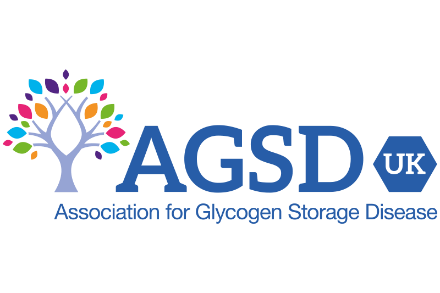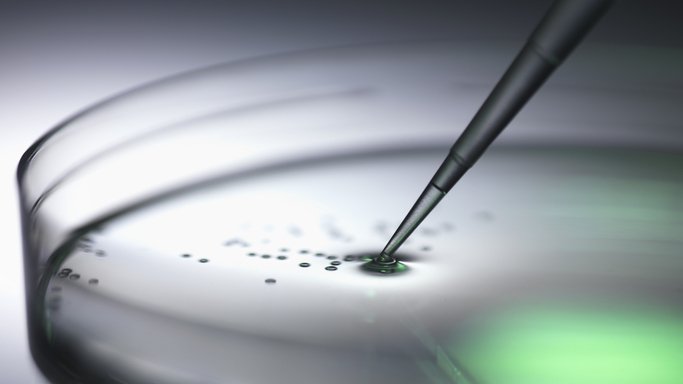Pompe disease
Pompe disease (also known as glycogen storage disease type II or acid maltase deficiency) is a rare, genetic, metabolic disorder. Pompe disease is caused by variations in the acid alpha-glucosidase (GAA) gene which encodes the GAA enzyme.1 The GAA enzyme is responsible for breaking down glycogen within a part of the cell called the lysosome. An insufficient level of the GAA enzyme leads to toxic levels of glycogen, leading to cell death that causes tissue and organ damage. Skeletal and cardiac muscles are the tissues predominantly affected by the disease.
Patients with Pompe disease can experience a wide spectrum of symptoms.1 The adult late-onset form (Late Onset Pompe disease or LOPD) is characterized by slowly-progressing weakness of skeletal muscle, leading over time to decreased motor function and respiratory failure.2 The infantile form of the disease is typically more rapidly-progressing and is characterized by an enlarged heart and liver along with general muscle weakness, feeding difficulties, and respiratory distress. If left untreated, many children with infantile-onset Pompe disease will not live past the first year of life.1
The incidence and progression of Pompe disease vary with age of onset, ethnicity and geography.1 Genetic screening is making it possible to detect Pompe disease in newborns.
The only approved treatment for Pompe disease is enzyme replacement therapy, or ERT, which is a chronic treatment typically delivered in intravenous infusions every other week.1 ERT has markedly improved prognosis for patients with Pompe disease,2 but patients may still develop significant symptoms due to limitations of ERT; patients may also present substantial burdens to caregivers and to the healthcare system.1 Limitations to ERT therapy may be due to insufficient amounts of the externally infused GAA reaching the affected muscle cells and due to patients developing immune reactions to the infused GAA over time.1
Living with Late-Onset Pompe Disease (LOPD)
Maddie (she/they), Philadelphia, Pennsylvania
When Maddie was diagnosed with late-onset Pompe disease (LOPD) at 11 years old, her future felt uncertain. When she attended Muscular Dystrophy Association (MDA) camp the first time, she discovered a community and an identity that would help transform her attitude about living with a rare, chronic condition.
Living with Pompe requires managing chronic fatigue and mobility issues as well as attending extra doctor’s appointments and ERT infusions. Walking long distances or being on her feet for extended periods of time is increasingly difficult.
In college, she came out as gay and eventually became comfortable using gender-neutral pronouns. At school, she became involved with disability justice organizations, and found a knack for helping others find (or create) the resources and accommodations they needed.
Maddie’s story of self-acceptance has become the platform for her advocacy. She works as a Disability Media and Content specialist, runs a podcast, and uses social media to raise awareness in both the rare disease and disability networks. She has created a space that blends her passions for patient advocacy, disability justice, gender identity, and self-care into an open dialogue with the larger world.
Patients, families and other relations who are featured on this webpage have provided their consent to share their images, videos and stories in order to help broaden public understanding of the experience of living with a rare disease. The patients received a nominal stipend for their time.
Community Support & Resources
Those who would like to learn more about Pompe disease may find it useful to visit the websites of patient organizations and other groups that provide support for the Rare Disease community. The links below provide access to several but not all of the organizations that serve patients and caregivers in this disease state. Astellas is not affiliated with and does not endorse any of the organizations listed below. The information provided by Astellas is for informational purposes only and is not meant to replace the advice of a healthcare professional.
 | Acid Maltase Deficiency Association |
 | International Pompe Association (IPA) |
 | AGSD-UK – Association for Glycogen Storage Disease (UK) |
References
1.Schoser B, Bilder DA, Dimmock D, Gupta D, James ES, Prasad S. The humanistic burden of Pompe disease: are there still unmet needs? A systematic review. BMC Neurol. 2017;17(1):202. Published 2017 Nov 22. doi:10.1186/s12883-017-0983-2
2. Kishnani et al. 2006 Pompe disease diagnosis and management guideline. Version 1. Genet Med. 8(5): 267–288.






